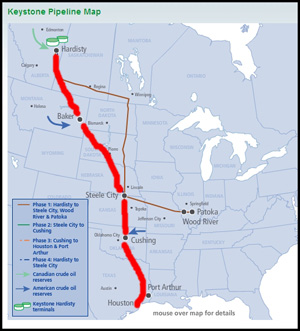mennonites
WHEN MAYA COMMUNITY educator Wilma Esquivel Pat opened a recent forum on the autonomy of Indigenous peoples, her remarks recalled her people’s struggle for self-determination in the Caste War of Yucatán—175 years ago.
European descendants had built lucrative sugar cane and henequen plantations on the peninsula that depended on Maya peasant farmers’ bonded labor. While the abolition movement was washing across the Americas, landholders on the Yucatán Peninsula began selling Maya prisoners of war and debtors into slavery in Cuba. In 1847, the Maya revolted and established an autonomous government in the eastern part of the peninsula that lasted through the turn of the century.
The era Esquivel Pat brought to mind remains recent, in generational time, for many Maya in attendance at the forum. Elders who held them as children may have themselves been cradled in the arms of elders who participated in that historic struggle. In them, their ancestors’ legacy reaches into the present. It’s a birthright they recall with pain and pride—the generations who resisted, as well as the white settlers and upper echelons of the colonial caste system who privatized land, exploited labor, and extracted returns at the expense of most of the region’s people.
When Raleigh Mennonite Church decided to fast from food waste for Lent, they didn’t know that 14 days in, the World Health Organization (WHO) would declare COVID-19 a pandemic. At a time when a core group of members planned on salvaging still-edible food from the dumpsters outside of grocery stores, hoards of Americans emptied the supermarket shelves of essentials like milk and bread and boxed wine.
Early this month, the Mennonite Church USA succeeded overwhelmingly in passing a resolution in support of peace and justice in Israel/Palestine — and it was no easy feat. As an eyewitness and active participant to the activities leading up to this landslide vote, I can tell you the road there was tough, agonizing, and expensive.
IT CAME TO pass in the summer of ’72 that many young people gathered in Dallas for Explo, a week of training for Christian witness sponsored by Campus Crusade for Christ. ... And among those present in Dallas were some messengers of peace—some post-Americans calling themselves the People’s Christian Coalition, and a few sons of Menno sent by the Mennonite Central Committee, who had also come to witness for their Lord.
The messengers of peace set up their booths along with many others and distributed their literature. And many people came by. Some looked and smiled; some looked and frowned. Some said “right on” and “we need that” in response to posters saying “blessed are the peacemakers” and “swords into plowshares”; but others said “praise the Lord, God will take care of wars, all we need is to win people to Christ.”
 Most of my friends knew evangelicalism only through the big, bellicose voices of TV preachers and religio-political activists such as Pat Robertson, the late Jerry Falwell and James Dobson. Not surprisingly, my friends hadn't experienced an evangelicalism that sounded particularly loving, accepting or open-minded.
Most of my friends knew evangelicalism only through the big, bellicose voices of TV preachers and religio-political activists such as Pat Robertson, the late Jerry Falwell and James Dobson. Not surprisingly, my friends hadn't experienced an evangelicalism that sounded particularly loving, accepting or open-minded.
After eschewing the descriptor because I hadn't wanted to be associated with a faith tradition known more for harsh judgmentalism and fearmongering than the revolutionary love and freedom that Jesus taught, I began publicly referring to myself again as an evangelical. By speaking up, I hoped I might help reclaim "evangelical" for what it is supposed to mean.
 President Barack Obama will decide as early as September whether to light a fuse to the largest carbon bomb in North America. That bomb is the massive tar sands field in Canada's Alberta province. And the fuse is the 1,700-mile long Keystone XL Pipeline that would transport this dirtiest of petroleum fuels all the way to Texas refineries.
President Barack Obama will decide as early as September whether to light a fuse to the largest carbon bomb in North America. That bomb is the massive tar sands field in Canada's Alberta province. And the fuse is the 1,700-mile long Keystone XL Pipeline that would transport this dirtiest of petroleum fuels all the way to Texas refineries.
The Keystone XL Pipeline is a climate and pollution horror beyond description. From August 20 to September 3, thousands of Americans -- including Bill McKibben, Danny Glover, NASA's Dr. James Hansen, and thousands more -- will be at the White House, day after day, demanding Obama reject this tar sands pipeline.
I'm going to be there, and I hope you will join me -- we need your voice.


